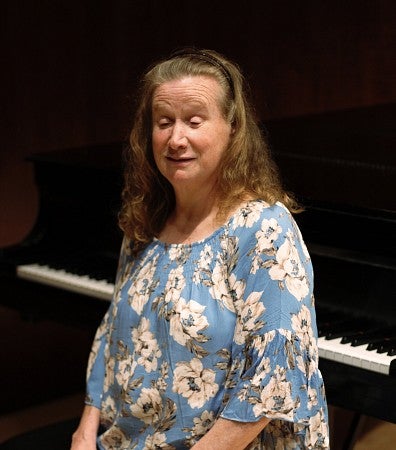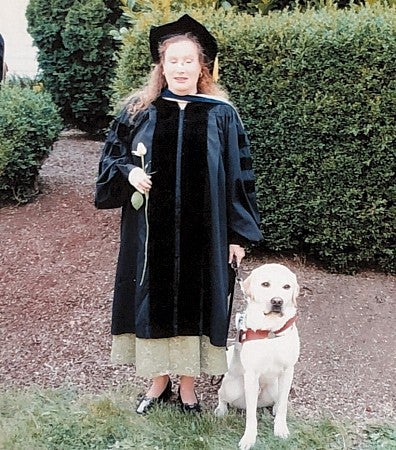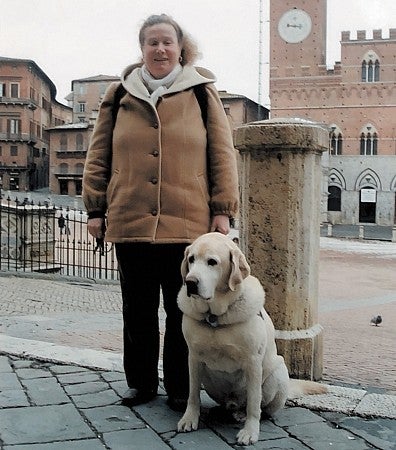
Dr. Jamie Weaver, who is blind, felt discouraged time and time again as a student in the university setting due to treatment she received regarding her disability.
“People would say, ‘Well, you can't major in that,’ or ‘I just don't know how you'll keep up with the reading in this class,’ or ‘maybe you'd be better off in a different field,’” Dr. Weaver recalled.
However, when she came to the University of Oregon in the early 2000s for her PhD, she found a different, more inclusive environment waiting. Professors never imposed limitations on her; instead, they worked to make lectures and assignments accessible.
"I can hardly express my gratitude for that feeling that I could do anything,” she said tearfully. “I had every opportunity everyone else did. I had as many opportunities as I wanted, as I could handle.”
This compassionate approach to teaching laid the foundation for Weaver’s own teaching career. She began teaching Music History at Stephen F. Austin State University (SFA) in 2008 and continues to serve there as an associate professor of musicology and coordinator of the musicology area.
“I found my time at the U of O particularly inspiring because all my teachers modeled good teaching,” she said after receiving her PhD in Music History with a secondary area in vocal performance. “They were caring and exhibited a great deal of interest in each and every one of their students.”

Jamie poses with her guide dog at SOMD graduation, 2006
Today, her teaching philosophy reflects this experience. She aims to blend high academic standards with flexibility to ensure each student feels valued and that their education is tailored to them.
Weaver has also carried her drive to increase accessibility to the concert halls at SFA and Longview Symphony Orchestra. She gives pre-concert lectures and writes program notes, approaching the music from the perspective of an audience member who may be experiencing it in a concert hall for the first time.
Additionally, she creates short videos that explain pieces of music, empowering audiences to become informed listeners and fostering inclusion among all attendees. “I enjoy doing this work very much!” she exclaimed.
Alongside her teaching responsibilities, Weaver continues her research. She is particularly interested in compositional ethics and rhetoric in Italian music. Her most recent projects explore the intersection between disability studies and music, especially as these fields impact female musicians, and contributions to the emerging discipline of public musicology.
Her interest in these areas was sparked during her dissertation research, which she conducted in Bologna, Italy as the recipient of an International Rotary Foundation Ambassadorial Scholarship and a University Doctoral Dissertation Research Fellowship from the University of Oregon. Her research focused on the compositional ethics of composers in Florence and in northern Italy during the late sixteenth and early seventeenth centuries.

Jamie visits Italy to conduct research for her dissertation, 2004
Returning once again to Oregon in June for the SOMD 2024 commencement ceremony, Dr. Weaver will be acknowledged as the ‘24 Distinguished Alum.
"It means a great deal to me to be honored as the distinguished alum because UO is still such a part of my life,” she smiled. “Every day, I incorporate ideas about research that I learned from my professors and my peers. It’s an honor to come back to Eugene and express my gratitude to the people I care about.”
